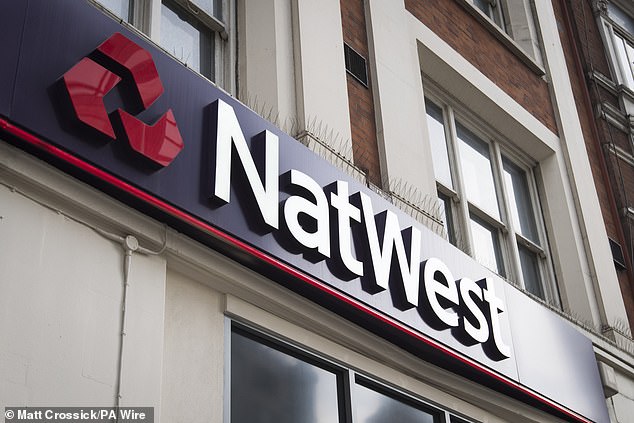- NatWest’s pre-tax profits fell to £1.33bn in the first three months of 2024
- Lloyds Bank and Barclays revealed their first quarter results earlier this week.
NatWest Group is the latest bank to report sharply lower first-quarter profits, amid peak interest rates and pressures on mortgage lending.
The banking giant’s pre-tax profits fell 27 per cent to £1.33bn in the first three months of 2024, although this beat analysts’ expectations of £1.26bn.
Total income fell by around £400m to £3.48bn, following a drop in deposit balances and a shift by customers towards savings accounts offering higher returns.
Results: NatWest’s pre-tax profits fell 27 per cent to £1.33bn in the first three months of 2024, although this beat analyst expectations of £1.26bn.
Revenue was further hit by weaker mortgage margins, amid increased competition in the home lending market and expectations of imminent interest rate cuts by the Bank of England.
Earlier this week, Lloyds Bank revealed that its pre-tax profits plunged 28 per cent to £1.63bn in the first quarter of 2024.
Over the same period, Barclays’ profits fell 12 percent due to lower mortgage loans and deposits and lower activity in its investment banking division.
All of these banks saw their profits soar after the Bank of England implemented 14 successive base rate hikes following the easing of Covid-related restrictions.
However, as the UK inflation rate has fallen significantly since hitting a four-decade high of 11 per cent in 2022, lenders have begun offering more generous mortgage deals to customers.
Subsequently, NatWest’s net interest margin – the difference between what banks charge borrowers and what they pay savers – fell 20 basis points year-on-year to 2.05 per cent.
The FTSE 100 group’s profits were also hit by higher operating expenses, which largely reflected rising employee costs and the Bank of England tax.
However, Paul Thwaite, chief executive of NatWest, said: “Customer confidence and activity are improving, both loans and deposits increased in the quarter and impairments remain low, reflecting our well-diversified business.” .
He added that he was “pleased” with the way the UK Government was reducing its stake in the bank, which now sits below 30 per cent.
Thwaite formally became chief executive in February after succeeding Dame Alison Rose on an interim basis last summer in the wake of the “debanking scandal”.
Rose, the first woman to run a major UK lender, resigned when she was found to have breached client confidentiality by telling a BBC journalist why former UKIP leader Nigel Farage’s Coutts accounts were closed , a subsidiary of NatWest.
A review by law firm Travers Smith later concluded that the bank had not broken the law by closing Farage’s accounts, although it criticized Rose for leaking customer information, saying it was “probably” in breach of data protection laws. .
NatWest Group Shares They rose 3.3 per cent to 299.4 pence on Friday morning, meaning they have risen around 36 per cent since the start of the year.
Matt Britzman, equity analyst at Hargreaves Lansdown, said: “Of the UK-listed banks, NatWest appears best positioned to benefit from a higher rates environment as its structural hedge is derived from some of the rates. lowest in the sector”.

